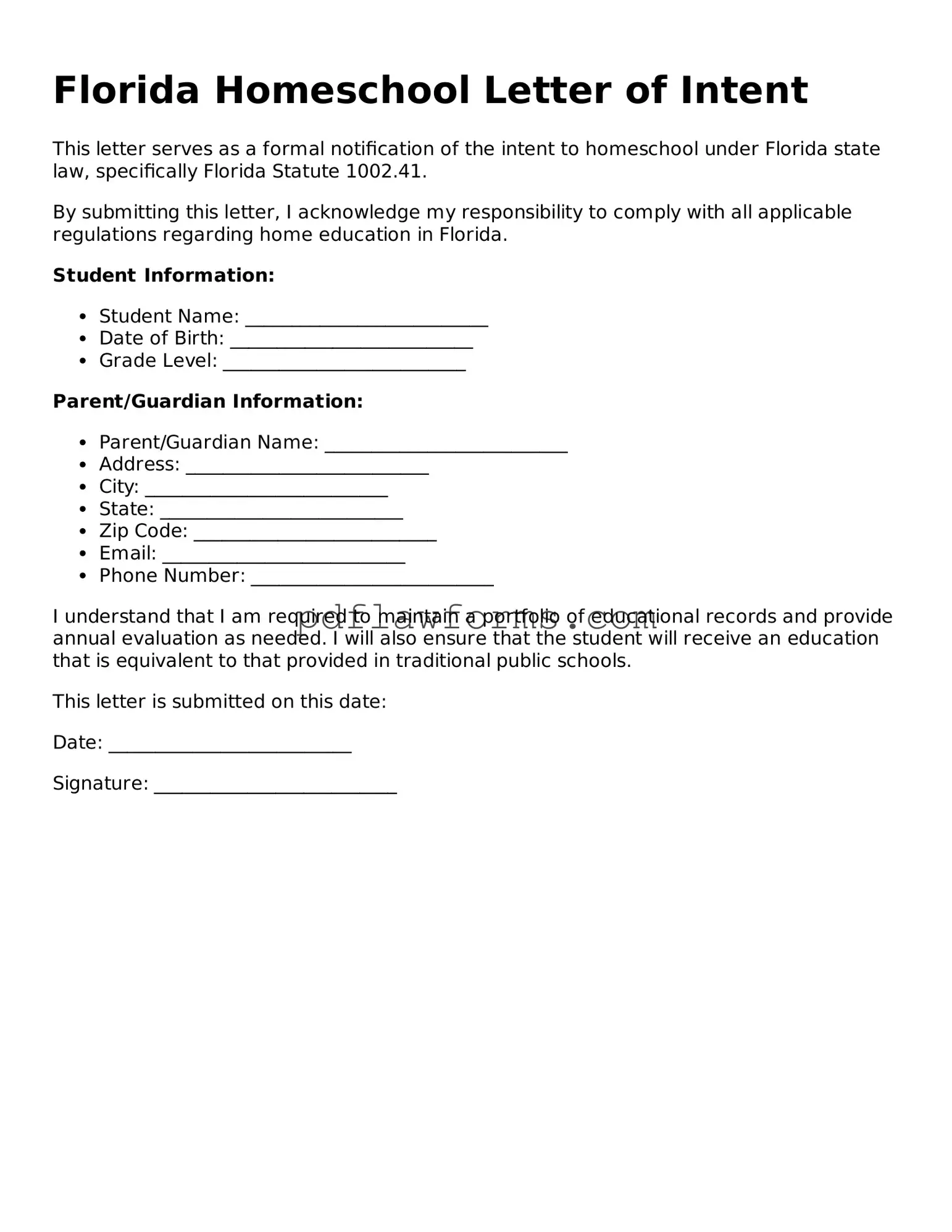Filling out the Florida Homeschool Letter of Intent form can seem straightforward, but many make common mistakes that can lead to complications down the line. One frequent error is neglecting to include all required information. The form asks for specific details, such as the names and ages of the children being homeschooled. Omitting even one piece of information can result in delays or even rejection of the application.
Another mistake often made is failing to sign and date the form. A signature indicates that the parent or guardian is officially submitting the intent to homeschool. Without this crucial step, the form is incomplete and may not be processed by the local school district.
Many individuals also overlook the importance of submitting the form to the correct school district. Each district has its own procedures for handling homeschool notifications. Sending the letter to the wrong office can create unnecessary confusion and may require additional follow-up to ensure that the intent is recognized.
Additionally, some parents mistakenly assume that they can submit the form at any time. While Florida law allows for homeschooling, there are specific timelines for submitting the Letter of Intent. Failing to meet these deadlines could mean that the homeschooling year is not officially recognized, potentially affecting the child’s educational records.
Another common oversight is not keeping a copy of the submitted form. It’s wise to retain a personal copy for future reference. This can be especially helpful if any questions arise regarding the homeschooling status of the children or if proof of intent is needed later.
Inaccurate or incomplete information about the educational curriculum is another pitfall. While the form does not require detailed curriculum descriptions, stating that a curriculum will be used without specifying which one can lead to misunderstandings. Providing clarity about educational plans can help avoid complications with the school district.
Some parents also forget to check for updates to the form or any changes in state requirements. Laws and regulations can change, and staying informed is essential for compliance. Ignoring these updates can lead to mistakes that may impact the homeschooling process.
Moreover, not understanding the implications of the Letter of Intent can lead to confusion. This document is not just a formality; it signifies a commitment to educate a child at home. Parents should be aware of their responsibilities and the legal implications of their choice to homeschool.
Finally, many underestimate the importance of being thorough and organized throughout the entire homeschooling process. Keeping records of submissions and communications with the school district can save time and stress later. A proactive approach can help ensure that the homeschooling experience is smooth and compliant with Florida laws.

